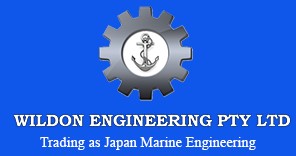Yanmar Diesel Marine Engines: Most Important Spare Parts to Keep Onboard
Blog | June 8th, 2018
Smart yachtsmen keep spare parts onboard. Seeing that oceangoing vessels have adopted this fundamental strategy, how can a recreational sailor do less? It’s just common sense, a safety net that’ll protect the boat if it breaks down kilometres from shore. Having arrived at that realization, what spare parts deserve a place onboard? Remember, storage space is a limited resource, so choose wisely.
A Shelf Full of Fuel Filters
If a ship’s diesel engine splutters and cuts out, a clog is likely starving it of fuel. A quick check of the fuel filter confirms that diagnosis. When this problem occurs on a car, the owner just heads for the auto parts store and purchases a new part. Out on the open water, that’s not an option. Keep new fuel filters onboard.
Storing the Vessel’s Lifeblood
The fuel needle is hitting the full mark. But wait, there are other fluid-based systems on boats. A coolant leak, an incident that fouls the bilges of the boat, is repairable, but that quick fix won’t help if there’s not a fresh bottle of coolant on hand. On a similar note, there are other system fluids to purchase and store onboard. Power steering and lubricating oils, hydraulic fluids and transmission oil, they should all be safely bottled up and on a shelf.
Onboard Replaceable Spare Parts
A few engine belts, perhaps for the water pump or drive alternator, won’t take up much space. Stock them, add extra electrical fuses and hose clamps, and organize the stack of replaceable components. Pack these components in their own sealed baggies. Electromechanical components don’t like water or dirt.
Larger Reserve Items
Remember, space is a limited resource on a small boat. Prioritize the storage strategy. Put fluid bottles and fuel filters in a dry area, add the bagged items to a toolkit, and then leave space for the following larger mechanical parts. A spare propeller is a wise acquisition. Add a few hoses and water pump impellors to the mix, just to really firm up that safety net.
And the list doesn’t stop with these stored components. Include a box full of commonly used nuts and bolts and a bottle of cleaning fluid. Add rags, an important bilge cleanup asset, and then finish up the important spare parts inventory by adding a flashlight and some fresh batteries. Even if the ship engine is reliable and all of those spare parts are dependable, breakdowns happen, and Murphy’s Law says that the component failure will take place at night, in an area where there are no street lights to illuminate the situation.
Optimized by NetwizardSEO.com.au
Recent Posts
- Marine Anchor and Chain: Innovations in Anchor Technology for Modern Vessels
- Marine Supplies and Dry Docking: How Japan Marine Spares Improve Efficiency
- Marine Deck Cranes & Machinery Supply from Japan Marine Engineering: Navigating the Global Market in 2024
- Marine Diesel Turbochargers: New Equipment and Spares from Japan Marine Engineering
- KEMEL Stern Tube Seals: Amplifying Engine Propulsion and Propeller Shaft Longevity
- Mitsubishi Selfjectors: The Cutting-Edge Oil Purifiers for Marine Vessels
- Marine Vessel Spare Parts: Australian Global Supplier for Shipping Industries
- Yanmar Fuel Injection Valves: The Power of Precision in Marine Engine Performance
- Why Yanmar Fuel Injection Pumps are the Reliable Choice for Your Engines
- Yanmar Diesel Engine Maintenance: Advantages of Using Genuine Yanmar Parts and Fluids
